Return stolen assets to the rightful owners
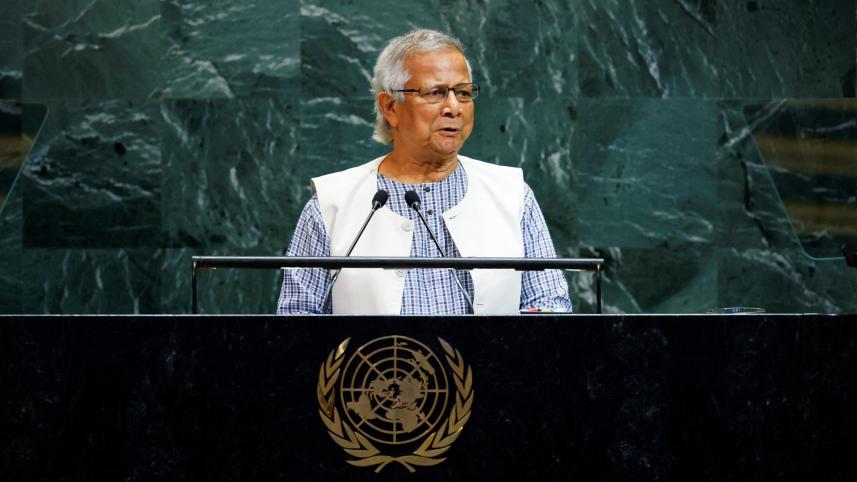
Chief Adviser Prof Muhammad Yunus has urged the international community to adopt and enforce strong global regulations to prevent the plunder of resources from developing countries and to ensure their return when stolen.
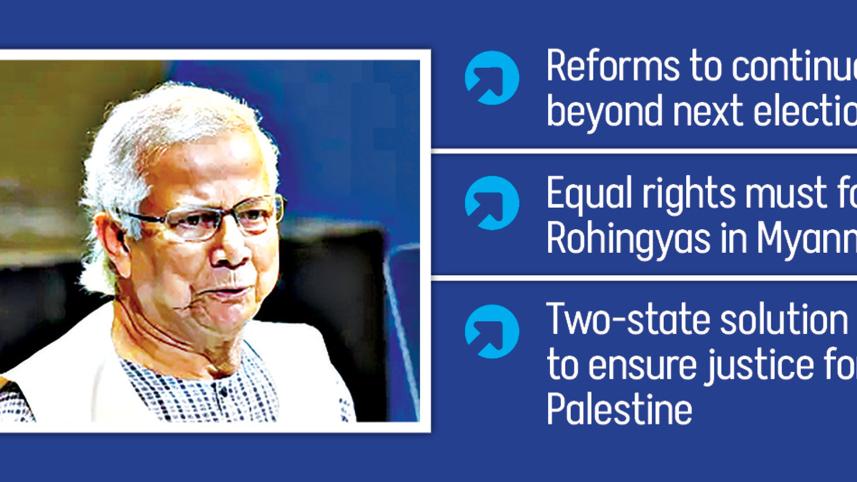
The current global financial system has failed to stop the illicit transfer of wealth, Yunus said, addressing the general debate of the 80th UN General Assembly in New York yesterday.
In some cases, he added, the very rules of international financial institutions have "enabled" the movement of vast sums of "illegal" money into tax havens.
"I call upon those countries and institutions that shelter such stolen assets: do not be complicit in this crime. Return the wealth to its rightful owners -- the farmers, the workers, and the ordinary taxpayers," he said.
Yunus noted that recovering illicit assets stolen from Bangladesh is now one of his government's "highest priorities".
He said billions of dollars were siphoned abroad in the past 15 years through corruption, but legal obstacles in destination countries have slowed recovery efforts.
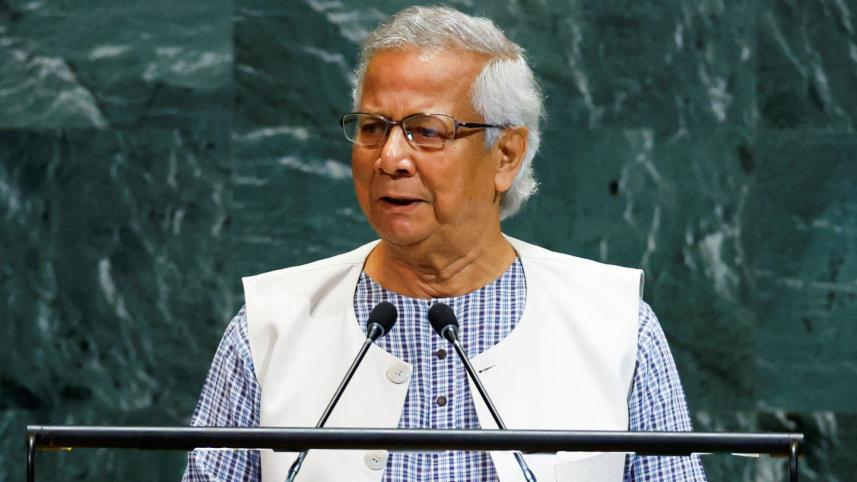
"Without sincere political commitment from the countries concerned we will not be able to recover these assets," he warned.
Calling for reforms in global financial governance, Yunus pressed for an inclusive framework for international tax cooperation, coordinated measures against illicit financial flows, and stronger cooperation to recover stolen wealth.
His remarks echoed a white paper on the economy released last November, which estimated that an average of $16 billion (around Tk 2 lakh crore) was siphoned abroad annually during Sheikh Hasina's "corrupt autocracy". In October last year, Bangladesh Bank Governor Ahsan H Mansur said $17–18 billion (around Tk 2.2 lakh crore) was siphoned through the banking sector alone between 2009 and 2023.
A high-level joint task force is now investigating 11 priority cases of alleged embezzlement and money laundering. Preliminary findings suggest most of the 10 conglomerates under investigation laundered money to the US, UK, Canada, Singapore, Malaysia, Thailand, Hong Kong, and other offshore jurisdictions, an official told The Daily Star recently. The task force is working with agencies in those countries to trace and recover the funds.
REFORM, DEMOCRACY
This was Yunus's second address to the UNGA since taking office after the August 5, 2024 ouster of the Sheikh Hasina government through an uprising. Delivering his speech in Bangla, he said it was Bangladesh's youth who defeated tyranny and opened a new path toward a just and equal society.
"Our goal is clear: to create a democratic order where power is balanced, where no autocrat can ever return, where no elected leader can destroy democracy, and where those who are meant to protect the people can never again prey upon them," he said.
Yunus highlighted the government's reform programme, citing the "July Declaration", a time-bound commitment to reform announced on the first anniversary of the uprising. "That commitment means no matter who wins the next election, the reform process will not stop, will not reverse, and will not be undone," he said.
"Now, as we prepare for national elections in February next year, we remain steadfast in carrying forward reforms that place citizens at the centre," Yunus added.
He reaffirmed commitments to labour rights reforms, safe migration, women's empowerment, and youth policy. He said Bangladesh has acceded to the International Convention for the Protection of All Persons from Enforced Disappearance and authorised a three-year mission of the UN Human Rights Office in Dhaka to strengthen the democratic transition.
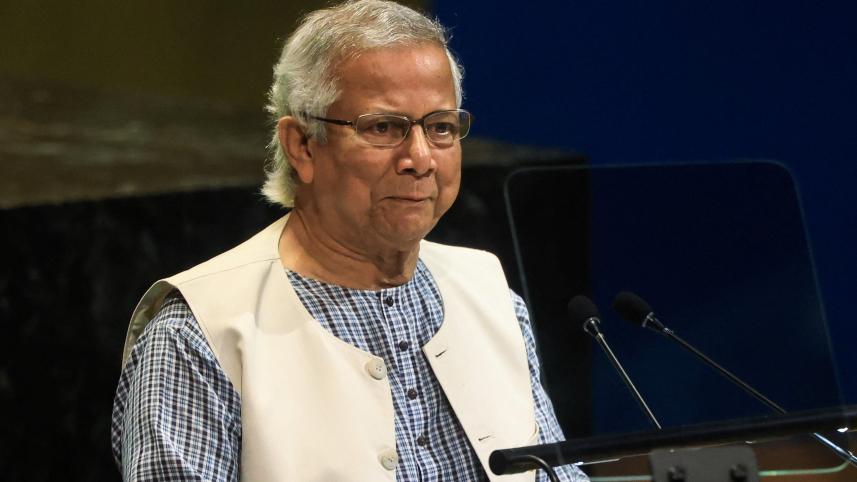
ROHINGYA AND GLOBAL CONFLICTS
On the Rohingya crisis, Yunus warned that the ongoing conflict in Myanmar threatened regional stability and the prospects for safe repatriation of the refugees from Bangladesh. He urged a political solution in Myanmar's Rakhine State that would ensure the Rohingya equal rights as citizens.
Eight years on, the Rohingya crisis continues without any solution in sight. Moreover, Bangladesh faces a slow but regular flow of Rohingya seeking protection.
The international community, beyond new and enhanced funding for humanitarian assistance, must apply "pressure" on Myanmar or the non-state actor in Rakhine to bring positive changes there and seek a political solution urgently, the chief adviser said.
He emphasised that neighbouring countries must assume their responsibilities.
He said the standard of living in the camps faces a situation of potential collapse given the funding crunch.
He also called for urgent action on Gaza, saying, "Nowhere is this tragedy more visible than in Gaza. Children are dying of hunger. Civilians are being killed without distinction. Entire neighbourhoods, including hospitals and schools, are being wiped from the map."
"We do agree with the UN independent international inquiry commission that we are witnessing a genocide happening live. Unfortunately, on behalf of humanity we are not doing enough to stop it. If this continues, neither future generations nor history will forgive us," he said.
He reiterated Bangladesh's support for a two-state solution with East Jerusalem as the Palestinian capital.
Yunus spoke of global instability and renewed Bangladesh's call for nuclear disarmament and the establishment of nuclear-weapon-free zones in the Middle East and South Asia.
CLIMATE, YOUTH, TECHNOLOGY
Warning that the 1.5°C climate goal is slipping out of reach, Yunus criticised the failure of developed nations to deliver on the $100 billion annual climate finance pledge. "The small sums that are disbursed are often shown on paper as many times larger than what they really are. This is unacceptable," he said.
He announced Bangladesh's four national pledges under the Beijing+30 Action Agenda to strengthen women's empowerment and stressed the urgency of bridging the digital divide for youth.
Emerging technologies such as AI and quantum computing must not exclude developing countries, he added.
Yunus also cautioned against disinformation and hate speech, noting how false narratives spread during and after last year's uprising.
REGIONAL COOPERATION
Calling the UN "the custodian of multilateralism", Yunus acknowledged that global diplomacy is "under strain" and urged greater transparency and dialogue among member states.
He said Bangladesh remains committed to regional cooperation through BIMSTEC, BBIN, SASEC, and other platforms, and expressed interest in joining ASEAN.
He also called for revitalising SAARC, saying its institutional framework still has potential to deliver welfare to millions.
On development, he warned that progress toward the Sustainable Development Goals has "fallen dangerously behind" due to shrinking aid and widening financing gaps. He urged donor nations to reverse the trend.
"We must remember that the challenges ahead cannot be met by any single country alone," Yunus said. "In today's world, when crisis erupts in one corner, the security of the whole world is put at risk."



 For all latest news, follow The Daily Star's Google News channel.
For all latest news, follow The Daily Star's Google News channel. 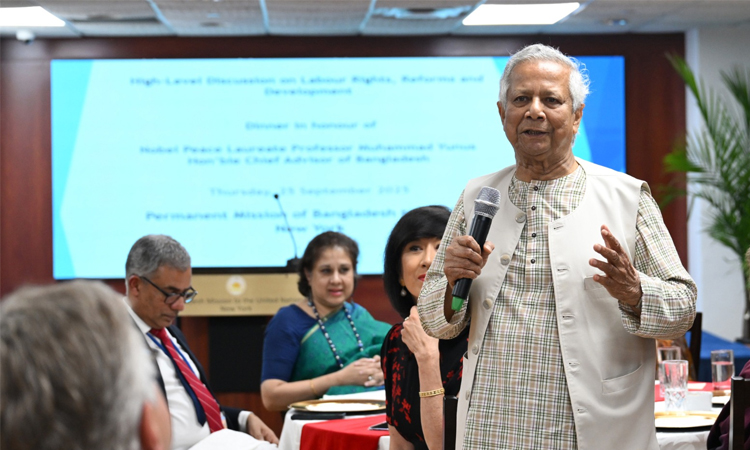
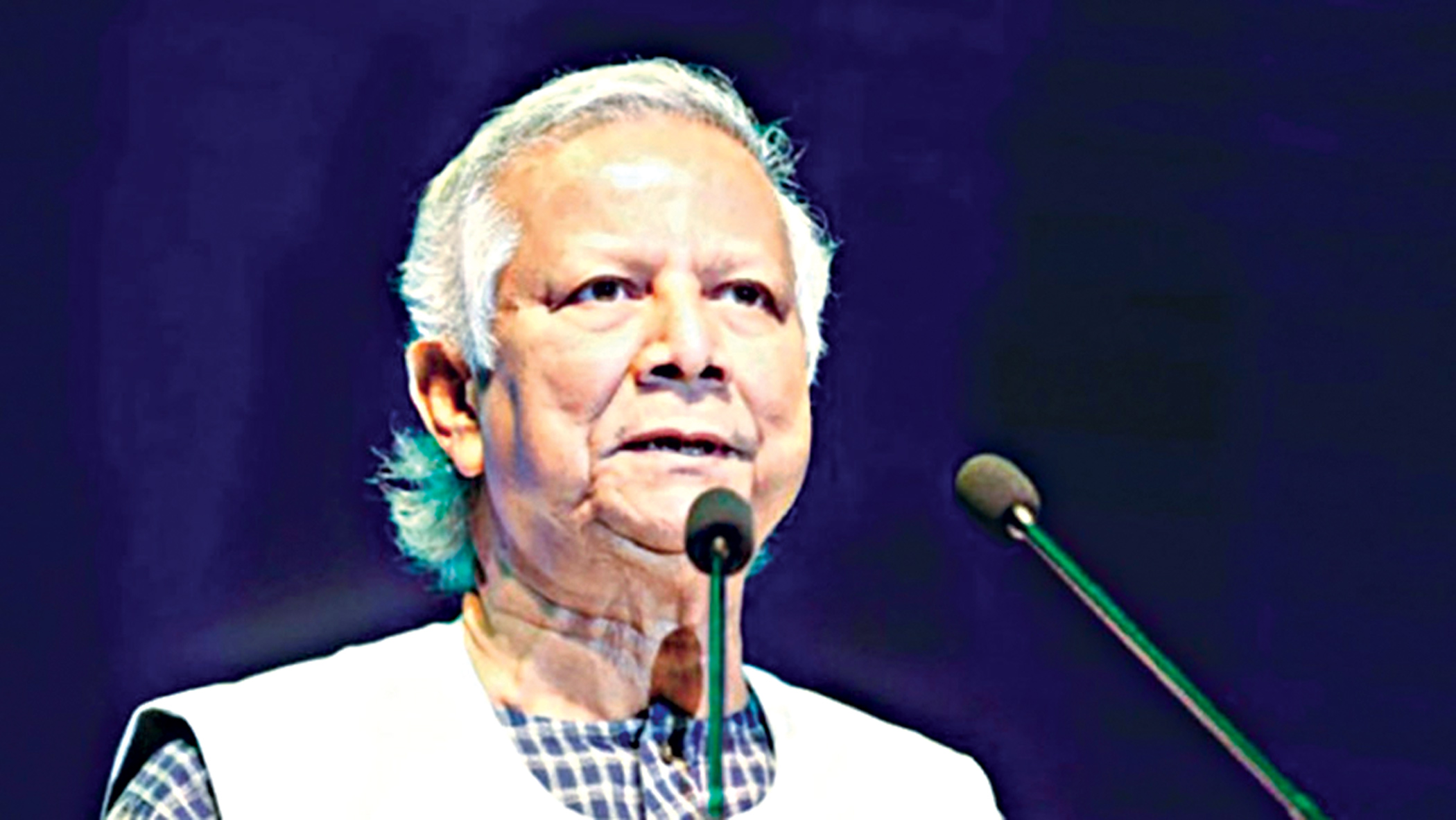
Comments